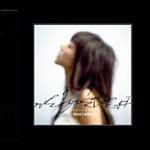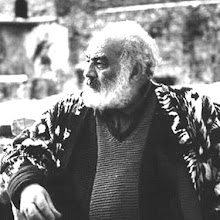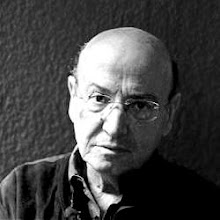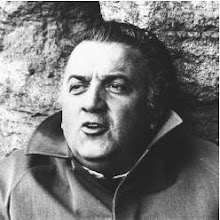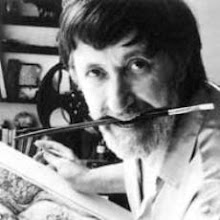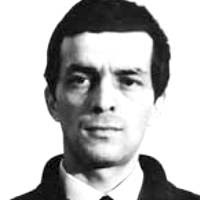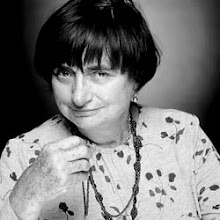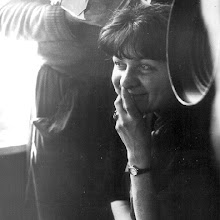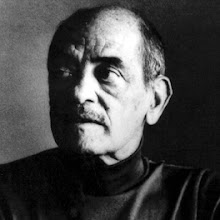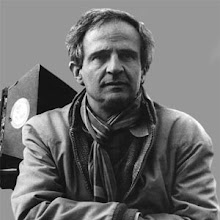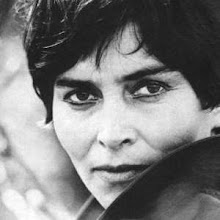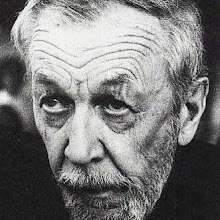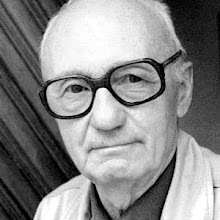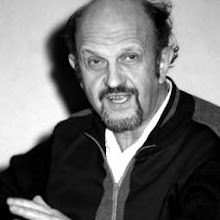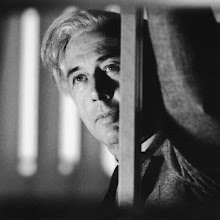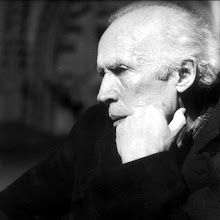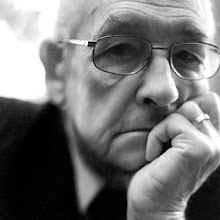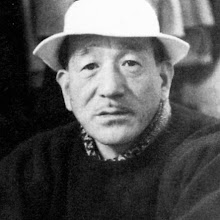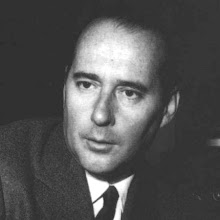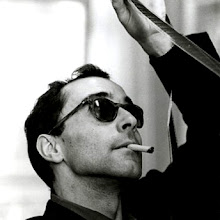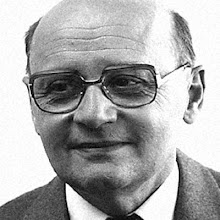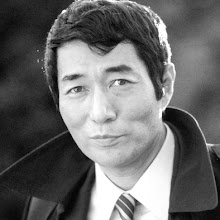
Title:Erotikon
aka:Seduction
Director:Gustav Machatý
Release Date:1929
Genre:Drama
Country:Czechoslovakia
Language:Czech
IMDb
簡介。。。。。
Considered as most important czech movie of silent era.
A groundbreaking sex scene and innovative imagery lift Gustav Machatý's largely forgotten silent melodrama.
A rural railway stationmaster's virginal but obviously curious daughter is sexually initiated by a lothario stranded at the depot by a fierce storm. Their love scene contains no nudity; you barely know the guy is there. But the sequence pulses with erotic energy, with its close-ups of the girl's gasping, glowing face, shaky point-of-view shots of her bedroom walls and, finally, the image of two drops of water sliding down her windowpane, merging into one.
This, mind you, in a silent film released in 1929. Erotikon's plot is melodramatically standard: Left pregnant, Andrea (played beautifully by Slovene actress Ita Rina) marries another man and moves to Prague, only to encounter her former lover and recover her former lust. But the film's expressionistic imagery and nonjudgmental approach to sexual desire (especially female sexual desire) lent it an avant-garde tinge. (Surrealist writer Vítezslav Nezval had an uncredited hand in the screenplay.) Largely forgotten amid the international sensation Machatý's taboo-busting Extase wrought three years later and thought lost for decades, Erotikon stamps its maker as the first real artist to emerge from the Czech cinema.
我的碎碎唸。。。。。。評價指數:7.3/10 Considered as most important czech movie of silent era.
A groundbreaking sex scene and innovative imagery lift Gustav Machatý's largely forgotten silent melodrama.
A rural railway stationmaster's virginal but obviously curious daughter is sexually initiated by a lothario stranded at the depot by a fierce storm. Their love scene contains no nudity; you barely know the guy is there. But the sequence pulses with erotic energy, with its close-ups of the girl's gasping, glowing face, shaky point-of-view shots of her bedroom walls and, finally, the image of two drops of water sliding down her windowpane, merging into one.
This, mind you, in a silent film released in 1929. Erotikon's plot is melodramatically standard: Left pregnant, Andrea (played beautifully by Slovene actress Ita Rina) marries another man and moves to Prague, only to encounter her former lover and recover her former lust. But the film's expressionistic imagery and nonjudgmental approach to sexual desire (especially female sexual desire) lent it an avant-garde tinge. (Surrealist writer Vítezslav Nezval had an uncredited hand in the screenplay.) Largely forgotten amid the international sensation Machatý's taboo-busting Extase wrought three years later and thought lost for decades, Erotikon stamps its maker as the first real artist to emerge from the Czech cinema.
這部影片拍攝于1929年,被認爲是捷克默片時代最重要的影片之一,也是我看過的第一部捷克默片。對於我來説,很有紀念意義。導演Gustav Machaty在那個時代由於這部影片引發了很大的社會爭議,一些人非常喜愛這部電影,而另一些人則對它厭惡至極。因爲這部影片中涉及到性愛情節,在當時頗爲禁忌,以至於被低估了70多年。幸運的是,拷貝在80年代的時候被發現了,沒有因爲多年的塵封而遺失,所以今天的觀衆又可以領略Gustav Machaty電影的魅力。
影片表現了愛情虛假的一面,講述了一個玩弄女性感情的僞君子欺騙了一位火車站長的女兒,使之懷孕並將其抛棄,又與一位有夫之婦發生關繫。被欺騙的站長的女兒出走並生下孩子,但卻是死產,身上沒錢還險些被壞人強暴,一位紳士將她救下,卻因爲與壞人搏鬥被刺了一刀。女孩也因爲自己的血液救了這位紳士,於是他們結婚了。可是一天,他們卻偶然地遇到了那個僞君子,兩個男人並且成爲朋友。女孩對他又愛又恨,但在他的花言巧語的勾引之下,女孩又對他產生愛慕之情,並決定抛棄丈夫卻發現這個僞君子依然是在騙她,最終還是回到丈夫的身邊。有夫之婦的丈夫發現了妻子與那個男人偷情的事後,一怒之下將他用槍打死。於是僞君子得到了他應有的懲罰。
我並不喜歡那個女主角,因爲我認爲她也有虛假的一面,感情被欺騙而且被抛棄的時候我同情她,遇到了一個好男人並且過上富裕生活的時候我為之感到欣慰,可是她對她的婚姻並不忠貞,面對再次誘惑的時候她背叛了她的丈夫,但發覺自己再一次受到欺騙之後,她又回到丈夫身邊。這讓我感覺她的婚姻是她的救命稻草,可以令她華貴的生活,如此而已。對於她的丈夫這是不公平的,也是被欺騙的。也許她最後醒悟了,對她最好、也是真正愛她的是自己的丈夫。影片的結局倒是比較圓滿,但是我仍然不喜歡這個女人。
影片中涉及到了一些性愛的内容,在當時的電影上頗爲禁忌。實際上Gustav Machaty表達性愛的手法是非常特別的,令人感覺很美好,而沒有任何猥瑣婬盪的感覺,因爲導演很含蓄地將鏡頭對準女主角的臉部,給其面部的大特寫,表現她沉醉其中直至高潮的面部神態變化。這種手法同樣用在了她生孩子的痛苦過程中,除了身體上的疼痛,更痛苦的是心靈上的打擊,於是鏡頭再次對準她扭曲掙扎的面部,和上一次形成了鮮明的對比,表現力在默片時代是非常震撼人心的。
影片在刻畫人物内心的微妙變化時也在當時的影片中非常先鋒。最精彩的一段莫過於女孩與丈夫,還有那個僞君子下棋的那場戯了。昏暗的光線打在他們的臉上,顯得非常詭異,氣氛非常緊張,每個人的心理活動都刻畫得非常精准到位,細膩豐富。還有女孩父親收到僞君子寄來的錢之後痛苦絕望時出現的朋友嘲笑他的臉、僞君子被槍殺時天旋地轉中出現的佛像,都很好烘托了人物。所以無論哪方面,這部電影在當時電影中都可以說是一部高水平的作品了,非常值得一看。




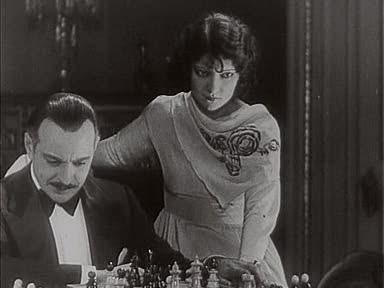
影片表現了愛情虛假的一面,講述了一個玩弄女性感情的僞君子欺騙了一位火車站長的女兒,使之懷孕並將其抛棄,又與一位有夫之婦發生關繫。被欺騙的站長的女兒出走並生下孩子,但卻是死產,身上沒錢還險些被壞人強暴,一位紳士將她救下,卻因爲與壞人搏鬥被刺了一刀。女孩也因爲自己的血液救了這位紳士,於是他們結婚了。可是一天,他們卻偶然地遇到了那個僞君子,兩個男人並且成爲朋友。女孩對他又愛又恨,但在他的花言巧語的勾引之下,女孩又對他產生愛慕之情,並決定抛棄丈夫卻發現這個僞君子依然是在騙她,最終還是回到丈夫的身邊。有夫之婦的丈夫發現了妻子與那個男人偷情的事後,一怒之下將他用槍打死。於是僞君子得到了他應有的懲罰。
我並不喜歡那個女主角,因爲我認爲她也有虛假的一面,感情被欺騙而且被抛棄的時候我同情她,遇到了一個好男人並且過上富裕生活的時候我為之感到欣慰,可是她對她的婚姻並不忠貞,面對再次誘惑的時候她背叛了她的丈夫,但發覺自己再一次受到欺騙之後,她又回到丈夫身邊。這讓我感覺她的婚姻是她的救命稻草,可以令她華貴的生活,如此而已。對於她的丈夫這是不公平的,也是被欺騙的。也許她最後醒悟了,對她最好、也是真正愛她的是自己的丈夫。影片的結局倒是比較圓滿,但是我仍然不喜歡這個女人。
影片中涉及到了一些性愛的内容,在當時的電影上頗爲禁忌。實際上Gustav Machaty表達性愛的手法是非常特別的,令人感覺很美好,而沒有任何猥瑣婬盪的感覺,因爲導演很含蓄地將鏡頭對準女主角的臉部,給其面部的大特寫,表現她沉醉其中直至高潮的面部神態變化。這種手法同樣用在了她生孩子的痛苦過程中,除了身體上的疼痛,更痛苦的是心靈上的打擊,於是鏡頭再次對準她扭曲掙扎的面部,和上一次形成了鮮明的對比,表現力在默片時代是非常震撼人心的。
影片在刻畫人物内心的微妙變化時也在當時的影片中非常先鋒。最精彩的一段莫過於女孩與丈夫,還有那個僞君子下棋的那場戯了。昏暗的光線打在他們的臉上,顯得非常詭異,氣氛非常緊張,每個人的心理活動都刻畫得非常精准到位,細膩豐富。還有女孩父親收到僞君子寄來的錢之後痛苦絕望時出現的朋友嘲笑他的臉、僞君子被槍殺時天旋地轉中出現的佛像,都很好烘托了人物。所以無論哪方面,這部電影在當時電影中都可以說是一部高水平的作品了,非常值得一看。









